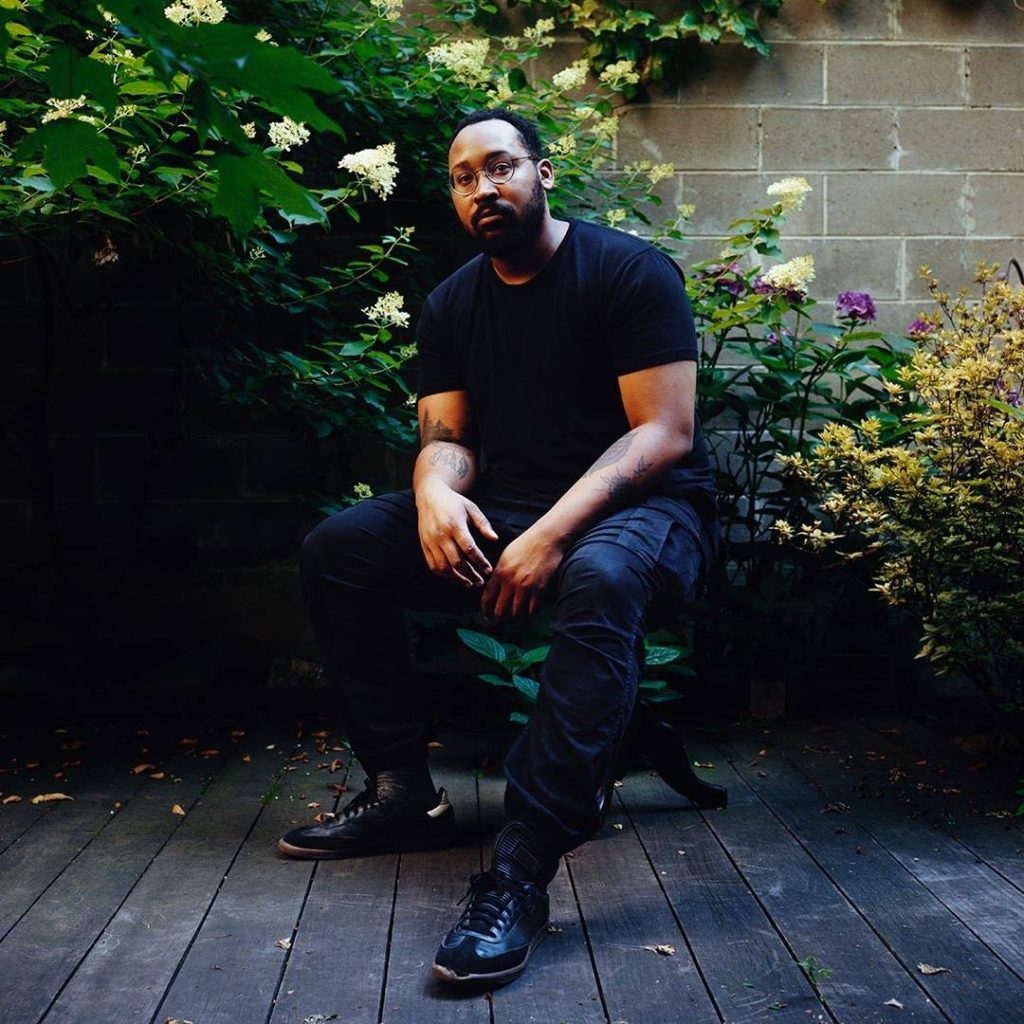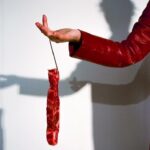Interview: Bartees & the Strange Fruit
Posted: by The Alt Editing Staff

Bartees & the Strange Fruit is like a box of chocolates; you never know what you’re gonna get. From stripped down folk to experimental audio effects, the sounds of Bartees’s first solo record are varied. The genuine delivery and deeply personal storytelling are a guidepost for listeners, who should expect the project to only continue widening its sonic scope from here.
Cox has been working towards the release of Magic Boy for years. “A lot of these songs I’ve had for probably five or six years” he said. “Or pieces of the songs for a decade – when I was in high school.” And, in a sense, he has already begun to tear it down. “I just got rid of a bunch of gear – all the gear that I used recording this record.” This isn’t a swift, unexpected death to Bartees & the Strange Fruit, but rather continued growth. “I’ve been piecing [the gear] together for the last three or four years and now that I used it on that record and figured out some things that I want to change, I sold a bunch of that and got a whole bunch of other new stuff.” Much like the music on the album itself, Cox is constantly pushing forward.
It hasn’t been an easy task though; much of the recording process came together through trial and error. “I’ve never done anything like this before,” Cox, who also recorded and mixed the record, told me. “I mean I’ve recorded with bands, but I’ve never been an engineer or anything like that. I’m just really into it in the last three or four years. I tried a bunch of stuff that didn’t work, but once I got a workflow going it got better and better.” Looking back at his work on Magic Boy there is already a bit of dissonance between the positive memories of putting it all together and the many things Cox would already like to change as he continues to grow. It’s often the case, though, that the most authentic records are snapshots of a particular point in an artist’s life.
This record can easily fall into that category, with Cox admitting that these are the most honest songs he’s ever written – and that made them the hardest to write. But “when I started finalizing and putting things and really recording it, I just wanted to put the music in a situation where I just held nothing back.” While recording for other projects, Cox feels that he was writing what he hoped people wanted to hear about him. “[In] this record I really tried to be like ‘nah man, growing up in Oklahoma was really rough and we were all really scared all the time and it was hard for a lot of us.’” That was just one side of the coin, though. Cox added that he also wanted to stress the other end of things, which is that “We’re strong, resilient communities and we make it out and we carry on.” These issues are deeply personal, but also extremely relevant both socially and politically. “I think a lot of people, at least that I know anyway, just feel kind of lost and don’t really know what’s coming next or where they should be putting themselves,” said Cox. He hopes one of the biggest messages that shines through on the record is a hopeful one: “We move through these things. One way or another.”
This idea also came into play when putting together the list of collaborators on the album. “I really wanted it to be progressive people and people representing oppressed communities because it’s like musicians ain’t shit, man,” which is something his mother has been telling him since he was a child. To Cox this means that many people who play in bands aren’t the best people, and he feels that last year it especially came to a head. He wanted to buck the trend. “The only people I want to mess with are people that come from these [oppressed] communities or that are doing a hell of a lot to make sure that those communities are safe and empowered,” he said. “And I thought putting the name Strange Fruit on it was to give a nod to everything that these communities have gone through.” Some of the collaborations were a given such as with Lizzie No, who Cox plays guitar for on her project, or horn player Jeremy Deaton, who he works with at this day job. Others came together organically simply by seeking feedback or even happenstance. The members of Project Diem just came over to Cox’s place one day and had great feedback on some of the tracks he showed them and then were included in Magic Boy themselves. And Rachael Balcanoff, featured on “Going Going”, isn’t a musician at all; she just happened to mention at a party that she could sing, was invited over to see how she would sound on the song, and nailed it.
This desire and ability to bring different people and sounds together stands out when reading the bio for Bartees & the Strange Fruit. “As a black person, he believes that showing how black people fit into what is commonly thought of as ‘white music’ is important.” When asked about this line, Cox said, “I think I’ve been sensitive to that theme for a big part of my life.” Growing up in Oklahoma, there was a strong lineage of country and folk artists within the culture. There was also the pull of North Carolina, where his family is from, and the many folk and blues players in his family, including his mother who is an opera singer. “But with folk and, specifically, folk-indie rock and a lot of the genres that we hear about as most mainstream or bubbling to the top, there’s just not a lot of representation of people of color, broadly. And I’ve always wondered why that is when the roots of the genre are really heavily steeped in a lot of the writing and art from black and brown communities, specifically from the South.” The goal for this project is to show what can happen when the people who created them reclaim these genres and that they can ultimately benefit form an infusion of other ideas. “One way musicians can really start to play their role in it,” Cox said, “is to make sure more diverse stories are being told. And I think that this is kind of one way to go about that to a community of people that might not necessarily have a huge friend base that is diverse.” And it doesn’t just stop with indie folk. “I didn’t want to be limited by a genre. I kind of wanted to have something where I could make folk songs, I could make pop songs – I just made a few songs that are definitely more like house, like drum and bass. So this project is a way to infuse blackness into a lot of different things that I feel are a little underrepresented. I just feel like it’s important that there’s more people of color doing as many things, being as visible as we possibly can right now.”
Looking to the future, Cox is filled with excitement. He points to artist like Speedy Ortiz, Jelani Sei, Lizzy Know, and his other band, Stay Inside, as acts that are saying “yes, and” to the scene. “It’s like, yes, there are some awesome bands on the scene and they might be all white or all straight or all whatever, but there are also these other bands that are also just as valuable and just as great.” He believes 2018 will be a really interesting year for artists of color and loves that more and more black artists are making waves in alternative genres. Of course, there are also big plans for Bartees & the Strange Fruit. “This record that I put out was really the demos for the record that I’m gonna put out this year. There’s another record that I’m gonna put out that’s a lot of the elements from this record, but built out into a full band and it’s a much larger production and it will be more like a band.” With Cox at the helm and a pool of supporting artist, it’s sure to be another stellar release.
—
Scott Fugger | @Scoober1013
The Alternative is ad-free and 100% supported by our readers. If you’d like to help us produce more content and promote more great new music, please consider donating to our Patreon page, which also allows you to receive sweet perks like free albums and The Alternative merch.










